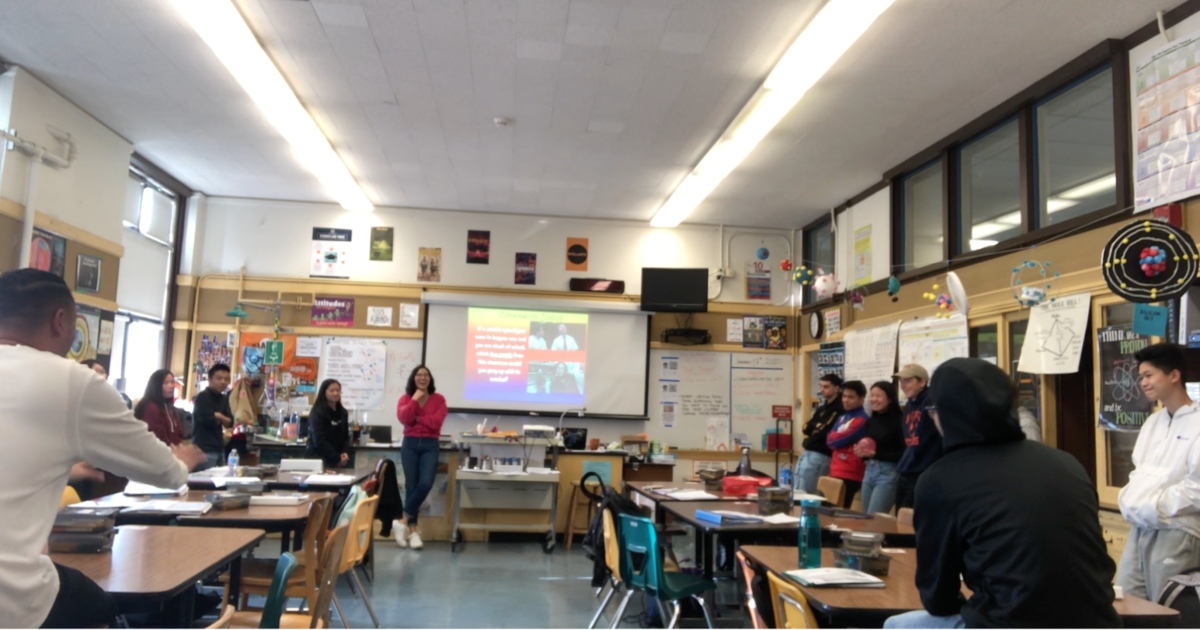We have all been stretched beyond our comfort limits during this pandemic, whether that’s learning how to remain connected without physically being near one another, or understanding what tools we need to support our mental health. Even in this time of social and emotional – not to mention academic – upheaval, the resilient teacher residents in the NYU Teacher Residency inspire a new sense of what is possible.
In the Teacher Residency, NYU Steinhardt faculty provide online synchronous and asynchronous learning while residents are immersed in classrooms around the country for an entire school year. Although our residents and faculty are comfortable with online instruction, no one ever imagined they would be wrapping up their year of preparation while being fully remote in their practicum classrooms. For residents, not being able to connect in person with their teacher mentors is a demanding adjustment. Additionally, the inability to meet face-to-face with students in the same room adds complexity to maintaining deep connections with students’ learning, social, and emotional needs.
Yet, despite all of this change in a time of crisis, we’ve witnessed our residents remain steady, focused, and incredibly adaptable as they navigate their new remote classrooms. All of these attributes conjure up one term: resilience. Resiliency is woven throughout the Teacher Residency course work. This core skill helps residents serve their students and communities to their fullest capacities, no matter the circumstances.
“Making sure our residents build resilience, inner strength, and confidence is a priority for us,” said Diana Turk, co-director of the NYU Teacher Residency and director of Teacher Education at NYU Steinhardt. “Ultimately we want our new teachers ready for a classroom of their own, and ready to provide all of their students with a quality education under any scenario. This takes strength and focus; these are exactly what we aim to develop in our residents.”
Teaching requires an abundance of resiliency. We see that exhibited today across the entire education sector: teachers conducting individual video lessons with students who may need extra attention; school districts ramping up professional development for online instruction; preparation programs filling gaps for teacher candidates; and teacher candidates creatively pushing forward with the tools they have available. There is a willingness to exceed typical expectations, and our residents effectively demonstrate this mindset.
“We know that becoming a teacher requires so many layers of support. Right now, it’s important that we [faculty] go above and beyond our typical supports and make sure residents feel comfortable with the prospect of finishing the school year in this remote environment,” continued Turk. “For example, we’ve got to consider what end-of-the-school-year activities residents are missing out on and how we can make up for that loss. As we [faculty] focus on teaching with empathy, we help our residents to do the same so they can use their strength and energy to assist their own students.”
Here are a few stories of how our residents and their schools forge ahead during these uncertain times:
- Lorraine Zhong, a resident in the San Francisco Unified School District, continues her participatory action research (PAR) project despite the option to abandon the project during the crisis. Under normal circumstances, the Teacher Residency requires residents to complete a PAR project. Zhong and her SFUSD students run an Instagram account inspired by “Humans of New York” for their school. Her PAR students – needing some sense of normalcy – are excited and invested in the work.
- Several residents in the City School District of Albany changed their PAR projects to address the immediate needs of their school communities.
- At the Inwood Academy in New York City, residents and teachers utilize social media to connect with students and families in engaging ways. They also use social media to highlight and celebrate Inwood community members who are essential workers.
- Stephanie Melendez, a resident with the School District of Palm Beach County, takes it all in stride. She’s turning around what could be an intimidating situation and is instead excited about the creative opportunities to reach her students with distance learning. Stephanie leverages technology to engage students in new ways, make lessons exciting, and encourage remote student collaboration.
We salute all educators, preparation programs, and teacher candidates who work tirelessly every day with students and families across the country. We are excited to graduate a new group of excellent teachers who not only are prepared to lead their own classrooms but who are also resilient and capable of meeting whatever challenges the Fall academic schedule may bring.
